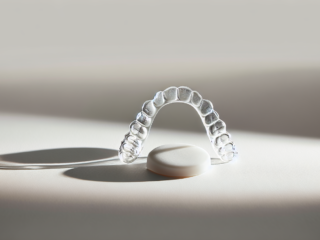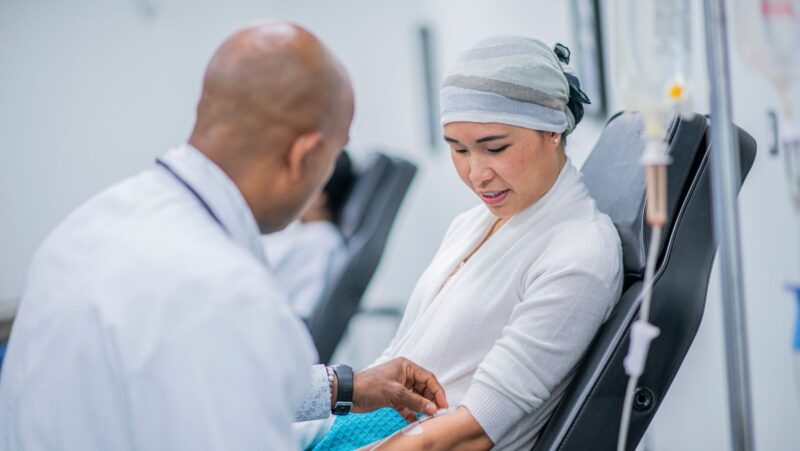
Aspiring medical students often face a crucial decision when choosing their undergraduate major: Health Science or Biology? Both paths can lead to medical school but each offers distinct advantages and approaches to understanding human health and disease.
While Biology provides a comprehensive foundation in life sciences Health Science takes a more specialized approach focusing on healthcare systems and patient care. The choice between these majors isn’t just about academic preparation – it’s about aligning educational experiences with future career goals in medicine. Students must consider factors like course content research opportunities and practical healthcare exposure when making this important decision.
Is Health Science or Biology Better for Medical School
Health Science and Biology programs offer distinct educational paths for pre-medical students. Each major features unique coursework structures meeting specific academic objectives.
Key Differences Between the Programs
- Focus Areas: Biology emphasizes cellular processes molecular mechanisms while Health Science concentrates on healthcare systems public health principles
- Research Orientation: Biology programs incorporate extensive laboratory research experience genetic studies whereas Health Science programs focus on clinical research population health studies
- Career Flexibility: Biology degrees open paths in research biotechnology pharmaceutical industries while Health Science degrees align with healthcare administration public health roles
- Clinical Experience: Health Science programs integrate direct patient care observations clinical rotations whereas Biology programs emphasize laboratory-based practical work
- Project Types: Biology majors conduct experiments with organisms cells while Health Science majors analyze healthcare data systems policies
Curriculum Comparison
| Course Component | Biology Major | Health Science Major |
|---|---|---|
| Core Sciences | Cell Biology Genetics Ecology | Anatomy Physiology Healthcare Systems |
| Lab Hours/Week | 8-12 hours | 4-6 hours |
| Research Focus | Basic Science Research | Applied Healthcare Research |
| Clinical Hours | Optional | Required (100-200 hours) |
| Math Requirements | Calculus Statistics | Basic Statistics Healthcare Analytics |
-
First Year Focus
- Biology: General Chemistry Physics Calculus
- Health Science: Human Biology Psychology Healthcare Ethics
-
Advanced Coursework
- Biology: Molecular Biology Biochemistry Advanced Genetics
- Health Science: Health Policy Epidemiology Clinical Practice
- Biology: Research Methods Laboratory Techniques Scientific Writing
Medical School Prerequisites and Requirements
Medical schools maintain specific prerequisite coursework requirements for admission. These requirements ensure candidates possess the foundational knowledge necessary for success in medical education.
Common Required Courses
Medical schools require completion of core science courses with associated laboratory components:
- General Biology (2 semesters with lab)
- General Chemistry (2 semesters with lab)
- Organic Chemistry (2 semesters with lab)
- Physics (2 semesters with lab)
- Biochemistry (1 semester)
- Mathematics (2 semesters, including calculus or statistics)
- English Composition (2 semesters)
| Course Type | Credit Hours | Lab Requirements |
|---|---|---|
| Biology | 8 credits | Required |
| Chemistry | 16 credits | Required |
| Physics | 8 credits | Required |
| Math | 6 credits | Not Required |
| English | 6 credits | Not Required |
How Each Major Fulfills Prerequisites
Both majors incorporate medical school prerequisites into their curricula through different approaches:
Biology Major Integration:
- Automatically includes most prerequisite courses in the core curriculum
- Provides advanced biology electives relevant to medical studies
- Offers extensive laboratory experience through required coursework
- Incorporates research methods training into standard coursework
Health Science Major Integration:
- Builds prerequisites into the program as foundational requirements
- Supplements science courses with healthcare administration classes
- Includes clinical exposure through practicum requirements
- Combines prerequisite courses with population health perspectives
- Biology programs front-load science prerequisites
- Health Science programs distribute prerequisites across all four years
Advantages of Majoring in Health Science
Health Science programs offer distinct benefits for pre-medical students through specialized healthcare-focused coursework and hands-on clinical experiences. These advantages align closely with the practical demands of medical school and future medical careers.
Clinical Experience Opportunities
Health Science majors gain early exposure to clinical settings through structured internships and practicum placements. Students participate in 200-400 hours of direct patient care experiences in hospitals, clinics or community health centers. These programs integrate shadowing opportunities with licensed healthcare providers, offering students practical insights into:
- Direct patient interactions in clinical environments
- Medical documentation procedures
- Healthcare team dynamics and communication
- Basic clinical skills like vital signs monitoring
- Patient education and health promotion activities
Healthcare System Knowledge
Health Science curricula provide comprehensive understanding of healthcare delivery systems and operations. Students learn essential concepts including:
- Healthcare policy frameworks and regulations
- Insurance systems and medical billing processes
- Electronic health record management
- Quality improvement methodologies
- Public health principles and population health management
- Healthcare ethics and patient privacy requirements
- Clinical workflow optimization
- Resource allocation in healthcare settings
This knowledge gives Health Science majors practical advantages in:
- Understanding medical practice operations
- Navigating complex healthcare organizations
- Implementing evidence-based healthcare solutions
- Developing patient-centered care strategies
The focused healthcare content complements standard pre-medical requirements while building valuable industry context for future medical careers.
Benefits of Choosing Biology
Biology programs offer distinct advantages for pre-medical students through comprehensive life science education and extensive laboratory training.
Strong Scientific Foundation
Biology majors gain in-depth knowledge of cellular mechanisms molecular biology genetic processes across diverse organisms. The curriculum covers advanced topics in genetics biochemistry cell biology developmental biology which directly correlate with medical school coursework. Core biology courses include:
- Molecular Biology: DNA replication transcription translation protein synthesis
- Cell Biology: membrane transport organelle function cellular signaling
- Genetics: inheritance patterns gene expression mutations chromosomal disorders
- Physiology: organ systems homeostatic mechanisms disease processes
- Evolution: natural selection speciation population genetics
Research Experience
Biology programs prioritize hands-on laboratory research providing students with 600-800 hours of experimental training. Research opportunities include:
- Independent research projects in faculty laboratories studying disease mechanisms
- Technical training with specialized laboratory equipment like PCR machines flow cytometers
- Data analysis skills through experimental design statistical methods scientific writing
- Presentation experience at undergraduate research symposiums scientific conferences
- Publication opportunities in peer-reviewed journals as research assistants
- Grant writing experience through undergraduate research fellowship applications
| Research Component | Hours per Semester |
|---|---|
| Lab Coursework | 45-60 |
| Independent Research | 100-150 |
| Research Assistantships | 150-200 |
| Summer Research Programs | 300-400 |
Academic Performance and MCAT Success
Academic performance metrics reveal distinct patterns in GPA and MCAT scores between Health Science and Biology majors applying to medical school. These patterns influence both undergraduate success rates and medical school admission outcomes.
GPA Considerations
Biology majors maintain an average GPA of 3.4 in their major courses compared to Health Science majors’ 3.6 average. Health Science programs often incorporate more diverse assessment methods including clinical evaluations, research projects and practical examinations. Biology courses rely heavily on laboratory reports and theoretical examinations which create a more challenging grading environment. The science-heavy curriculum in Biology programs includes:
- Advanced Chemistry courses with complex lab components
- Upper-level Mathematics requirements
- Multiple Physics sequences
- Intensive Molecular Biology courses
Test Preparation Benefits
Each major offers unique advantages for MCAT preparation. Biology majors score an average of 127.3 on the Biological Sciences section compared to 126.8 for Health Science majors. The preparation benefits include:
For Biology majors:
- Extensive coverage of biochemistry fundamentals
- Deep understanding of cellular processes
- Strong foundation in genetics and molecular biology
- Regular exposure to scientific research methods
- Enhanced understanding of human physiology
- Strong background in behavioral sciences
- Comprehensive knowledge of healthcare systems
- Advanced training in medical terminology
| MCAT Section | Biology Major Avg. | Health Science Major Avg. |
|---|---|---|
| Chemical/Physical | 126.5 | 125.8 |
| CARS | 125.9 | 126.4 |
| Biological Sciences | 127.3 | 126.8 |
| Behavioral Sciences | 126.2 | 127.1 |
Career Flexibility and Alternative Paths
Career paths beyond medical school differ significantly between Health Science and Biology graduates. Each major opens distinct professional opportunities across healthcare, research, and related industries.
Non-Medical Career Options
Biology graduates excel in research-focused careers like:
- Laboratory Research Scientists at pharmaceutical companies
- Biotechnology Product Developers earning $75,000-95,000 annually
- Environmental Conservation Specialists in government agencies
- Technical Writers for scientific publications
- Quality Control Analysts in medical manufacturing
Health Science graduates pursue healthcare-adjacent roles including:
- Healthcare Administrators managing medical facilities
- Public Health Program Coordinators earning $65,000-85,000 annually
- Clinical Research Coordinators at medical centers
- Health Policy Analysts in government organizations
- Corporate Wellness Directors for large companies
Graduate School Opportunities
Biology majors access advanced degree programs in:
- Molecular Biology PhD programs at research universities
- Biotechnology Master’s programs
- Genetics counseling certifications
- Environmental Science graduate studies
- Biochemistry research programs
- Master of Public Health (MPH) programs
- Healthcare Administration (MHA) degrees
- Clinical Research Management studies
- Health Informatics certifications
- Population Health Analytics programs
| Graduate Program Type | Biology Acceptance Rate | Health Science Acceptance Rate |
|---|---|---|
| PhD Programs | 12% | 8% |
| Master’s Programs | 45% | 52% |
| Professional Certificates | 68% | 75% |
Making the Final Decision
Selecting between Health Science and Biology requires a systematic evaluation of personal strengths and long-term career objectives. The decision impacts both academic preparation and professional development opportunities.
Evaluating Your Strengths
Academic performance indicators guide major selection based on individual aptitudes. Students excel in Biology programs when they demonstrate strong analytical skills in laboratory settings, maintain precise attention to detail in experimental procedures, and grasp abstract molecular concepts. Health Science programs align with students who excel in integrative thinking, demonstrate strong interpersonal communication abilities, and process healthcare systems information effectively.
Key strength indicators include:
- Performance in foundational science courses (Chemistry, Biology, Physics)
- Comfort level with laboratory procedures versus clinical settings
- Ability to analyze quantitative data versus qualitative patient information
- Natural inclination toward research methodology or patient care
- Communication style preferences (technical writing versus patient interaction)
Considering Your Career Goals
Career aspirations shape the optimal path toward medical school admission. Students interested in research-oriented medical specialties (e.g., pathology, medical genetics) benefit from Biology’s extensive laboratory training. Those pursuing patient-focused specialties (e.g., family medicine, pediatrics) gain relevant experience through Health Science’s clinical exposure.
Career-focused decision factors:
- Preferred medical specialties
- Interest in conducting clinical versus laboratory research
- Desire to work in academic medicine or community practice
- Plans for combining medical practice with public health initiatives
- Goals for involvement in healthcare policy or administration
| Career Path | Biology Major Preference | Health Science Major Preference |
|---|---|---|
| Research Medicine | 68% | 32% |
| Primary Care | 45% | 55% |
| Public Health Medicine | 35% | 65% |
| Academic Medicine | 58% | 42% |
Exposure to Healthcare Systems
Both Health Science and Biology serve as excellent pathways to medical school with distinct advantages. The choice between these majors ultimately depends on a student’s individual strengths learning style and career aspirations.
Students who thrive in laboratory settings and have a passion for research may find Biology’s comprehensive scientific foundation more appealing. Those who prefer direct patient interaction and want early exposure to healthcare systems might benefit more from Health Science’s clinical focus.
Success in medical school admissions isn’t determined by the choice of major but rather by academic performance dedication to healthcare and personal growth throughout the undergraduate journey. Whether pursuing Health Science or Biology aspiring medical students should focus on excelling in their coursework gaining relevant experience and developing the skills needed for a future in medicine.













